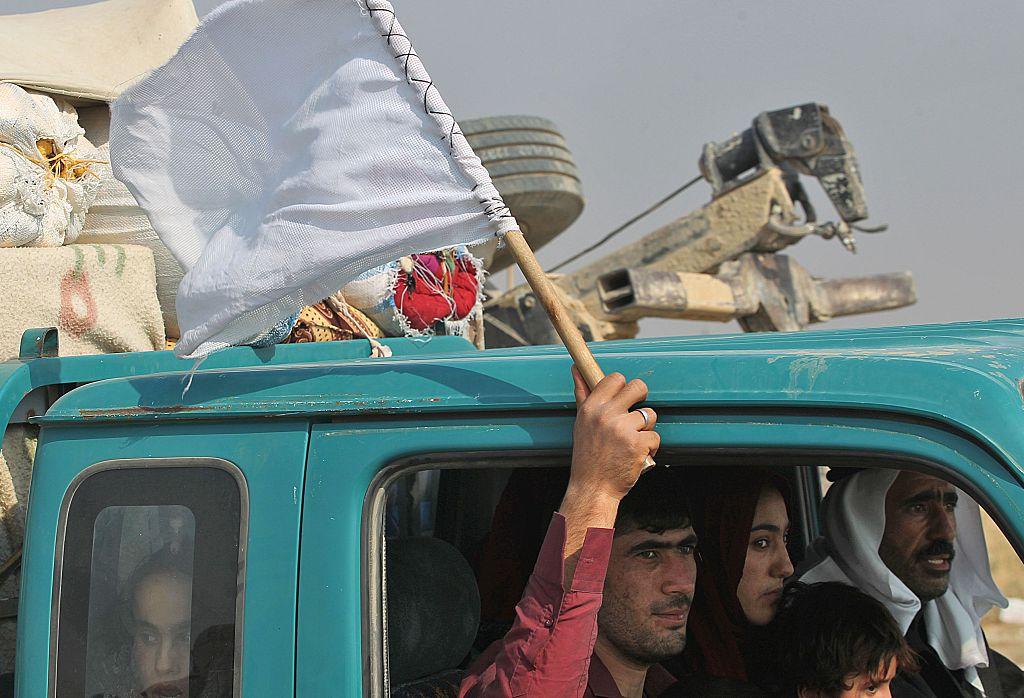The battle to liberate Mosul from Isis is bringing sectarianism in Iraq to an end
We are seeing, from the military, media, government and civilians, a unified effort to counter the false image of division. Nothing has brought the people of Iraq together like the desire to rid their land of jihadi terrorists

Your support helps us to tell the story
From reproductive rights to climate change to Big Tech, The Independent is on the ground when the story is developing. Whether it's investigating the financials of Elon Musk's pro-Trump PAC or producing our latest documentary, 'The A Word', which shines a light on the American women fighting for reproductive rights, we know how important it is to parse out the facts from the messaging.
At such a critical moment in US history, we need reporters on the ground. Your donation allows us to keep sending journalists to speak to both sides of the story.
The Independent is trusted by Americans across the entire political spectrum. And unlike many other quality news outlets, we choose not to lock Americans out of our reporting and analysis with paywalls. We believe quality journalism should be available to everyone, paid for by those who can afford it.
Your support makes all the difference.It has been more than two years since Mosul fell under the control of Isis, the terrorist organisation that has falsely sought to portray itself as the defender of Sunni Muslims throughout Iraq and Syria.
Since the fall of Mosul began we have seen a stream of analysts emerge who seek to explain what is happening in Iraq through the lazy framework of sectarian conflict, a position that is frankly offensive to most Iraqis.
That is not to say there haven’t been cases of sectarian abuse within the country and pressure must be constantly exerted on the Prime Minister, Haider al-Abadi, to take action to address it where it occurs. But what is very promising for the future of Iraq – and is missing from the perspective of so-called experts on the nation – is the qualitative change that is emerging from Iraqi society.
We are seeing, from the military, media, government and civilians, a unified effort to counter the false image of division. Nothing has brought the people of Iraq together like the desire to rid their land of Isis.
This unity of peoples in Iraq has manifested itself most recently with the launch of the campaign to liberate Mosul. This is a significant operation as Mosul has thus far been Isis’s de facto capital in Iraq within their so-called Caliphate, in addition to being the place of residence of top Daesh leaders including Abu Bakr al-Baghdadi.
For the first time in Iraqi history, we are seeing a coordinated effort from the Kurdish Peshmerga forces and Iraqi Security Forces. The significance of KRG president Masoud Barzani coming to Baghdad for a joint press conference with PM Haider al-Abadi, his first visit to Baghdad in five years, cannot be underestimated.
Further promising signs emerged when Barzani announced the start of Mosul operations from the Khazir front stating, “This is the first time the blood of the Peshmerga and the Iraqi forces are mixed. We hope it’s a good start to create a bright future for both sides.”
Perhaps most importantly, the Popular Mobilization Units (PMU) involved in liberating Mosul have been drawn primarily from local Sunni tribesmen and Assyrian groups such as the Nineveh Plains Unit, uniting of different social factions, including Sunni and Shia groups. Assyrian villages such as Bakhdida, which have been under Isis control for the last two years, have finally been liberated with the help of local resistance forces such as the Nineveh Plain Protection Units in conjunction with Iraq’s broader security forces, again revealing expanding levels of trust and cooperation.
However, though the unity we are seeing today is cause to celebrate, it is inevitably fragile. Sustaining this unity after the liberation of Iraq’s land from Isis militants will be a defining challenge for the people of Iraq. With the vast swathes of displaced peoples from Nineveh seeking to return home, it is crucial that the government has a clear and implementable plan to resolve the refugee crisis within Iraq.
Questions arise, for instance, about children who have been affected by Isis social should be rehabilitated and reintegrated back into Iraqi society. Other questions also emerge around reconciliation. How will Iraq ensure that reprisal attacks do not arise between various tribal groups that may feel betrayed? These questions are certainly sobering food for thought.
However, the liberation of Mosul is a major step towards defeating Isis and it brings new hope for the future of Iraq. Reconciliation is possible.
Mustafa Field is director of the Faiths Forum for London
Join our commenting forum
Join thought-provoking conversations, follow other Independent readers and see their replies
Comments